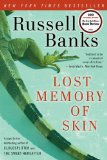Summary | Excerpt | Reading Guide | Reviews | Beyond the book | Read-Alikes | Genres & Themes | Author Bio

Fans of HBO's "The Wire" will no doubt recognize the type
of characters and narrative style in George Pelecanos' novel The
Turnaround; he was a writer for the critically acclaimed series.
Turnaround opens in Washington DC in 1972. Pelecanos draws on his own
background working as a delivery boy for his father's restaurant to write
the character of Alex Pappas, a teenager of Greek descent, who works in his
father's coffee shop in a working class section of Washington DC.
Alex and two of his friends are driving around, drinking beer and smoking
pot, when two of the boys decide to drive through Heathrow Heights, the area
of town where the working class black population lives. They throw a pie and
a racial slur at three young black men, and physical violence ensues.
Thirty-five years later, the repercussions of that incident still
reverberate in the lives of all of the participants.
Pelecanos raises important questions about racism, friendship, loyalty,
guilt and redemption in this tightly written story that leaves the reader
pondering these issues long after the novel has been read.
Parents tell their children to always make good decisions because one
mistake in judgment can have life-long consequences. Alex and brothers James
and Raymond Monroe (residents of Heathrow Heights, who are among the boys on
the receiving end of the racial epithets) are good boys, but they each
choose to do something, or in Alex's case not to do something, that changes
their lives, and the lives of others, forever.
Alex is a passive character, a young man who works in the family restaurant,
eventually taking over after the death of his father. Running the restaurant
was not a conscious career choice; it was what his family expected him to do
and, thirty years later, he's still doing it. But is it what he wants to do?
Alex delivers leftover restaurant food to families who are living at Fisher
House, a home for families of injured vets at Walter Reed Army Hospital.
Doing this keeps him close to his beloved son Gus, whom he lost in the Iraq
War. Raymond Monroe works as a physical therapist at Walter Reed,
helping returning war vets. He cares for his elderly mother, and has a
girlfriend with a young son. His own grown son is stationed in Afghanistan.
When Raymond runs into Alex at Fisher House the past collides with the
present. Pelecanos hints that things that happened thirty five years ago did
not exactly happen as everyone believed. Careful readers will be able to
figure out what did happen, and the tension builds as the truth is revealed.
Pelecanos delves into the racial divide in Washington DC in both 1972 and
2007, but it is more than race that separates these people; it is how they
were raised. The Monroe brothers grew up in a good family like Alex, with a
hardworking father and loving mother. Pelecanos contrasts their lives to
that of Charles Baker, a young man from the Heights who was also involved in
the incident thirty-five years ago. Things didn't work out well for him; he
is still hustling, and he is a hard man, one who feels that he is not
getting what is due him, and he intends to remedy that.
The cost of loyalty and sacrifice is examined. When a character lies and
makes a sacrifice for another, it changes both of their lives forever.
Although the character had a noble motive, that sacrifice has a ripple
effect on many lives, and the question remains, would things have turned out
differently if the lie wasn't told? How does the sacrifice affect both
people?
Publishers Weekly's starred review calls The Turnaround "beautifully
written and thought-provoking", and the Chicago Sun-Times review says
of Pelecanos, "he tells the truth… from deep in the heart". Both reviews are
accurate in their assessment of this outstanding book.
In a day when many authors feel compelled to write 600 page books, Pelecanos
believes in economy; he tells a completely satisfying, gripping story in
less than 300 pages. Perhaps that is the screenwriter in him. The only
criticism I have is that at times there seem to be so many characters that
it can be a challenge to keep the minor ones straight.
Pelecanos knows Washington DC, like Michael Connelly knows Los Angeles and
Dennis Lehane knows Boston. All three of these crime writers use their city
as an important character in their novels. The author's use of popular music
and other cultural touchstones from 1972 sets the mood and brings back many
fond memories for readers who came of age at that time.
But this is not just a novel for those who remember the '70s. As the
mother of college-aged sons, I believe this would be a wonderful novel for
them to read. The pacing is quick, the characters are realistic, and the
writing is crisp; it would keep their attention. It shows them that making
good decisions is important, yet it also addresses the possibility of
redemption when bad decisions are made.
![]() This review was originally published in The BookBrowse Review in September 2008, and has been updated for the
May 2009 edition.
Click here to go to this issue.
This review was originally published in The BookBrowse Review in September 2008, and has been updated for the
May 2009 edition.
Click here to go to this issue.

If you liked The Turnaround, try these:

by Russell Banks
Published 2012
Lost Memory of Skin is a provocative novel of spiritual and moral redemption from Russell Banks.

The Beautiful Things That Heaven Bears
by Dinaw Mengestu
Published 2008
A haunting and powerful first novel that views the streets of Washington, D.C. and Addis Ababa through the eyes of Sepha who, seventeen years ago, fled Ethiopia during the Revolution, and now runs a failing convenience store in a poor African-American neighborhood in Washington. Published as The Beautiful Thing That Heaven Bears in the USA, ...
Your guide toexceptional books
BookBrowse seeks out and recommends the best in contemporary fiction and nonfiction—books that not only engage and entertain but also deepen our understanding of ourselves and the world around us.